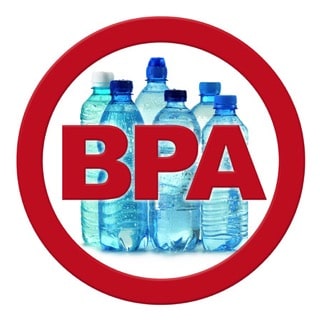BPA may trigger autoimmune damage to nerves

If you handle store receipts or use plastics (who doesn’t?), brace yourself for some disturbing new findings about BPA (bisphenol-A), the toxin in plastics and store receipts.
A new study shows BPA is linked with an autoimmune reaction that destroys the lining of nerves. Autoimmune nerve sheath degeneration is connected to autism spectrum disorders, multiple sclerosis (MS), neuropathy, and neurodegenerative disorders such as Parkinson’s disease.
Previous research has shown blood levels of BPA spike after handling store receipts for just five seconds, and that the toxin long lingers in the body.
BPA and neurological autoimmunity
A 2016 study found a significant link between an immune reaction to BPA and an autoimmune attack against nerve sheaths.
The important part about this study is that it’s based on immune sensitivity to BPA, not the amount of BPA in the blood.
A person can react to BPA the way people react to gluten, dairy, or other foods, developing inflammatory symptoms.
This means person may have low levels of BPA in their blood yet still have an immune reaction to it that can trigger autoimmunity. Conversely, a person may have high blood levels of BPA but no immune reaction and thus a lower risk of it triggering autoimmunity (although BPA is associated with other health disorders, too.)
Animal studies also show a high degree of correlation between BPA and autoimmunity.
BPA sensitivity in mothers raises autism risk in children
Autoimmunity to nerve sheaths is commonly associated with autism spectrum disorders. In fact, some research has found autoimmunity to nerve sheaths in almost 80 percent of subjects with autism compared to a control group.
Other studies show subjects with autism have significantly higher levels of BPA in their blood than controls.
Most disturbing are the findings that immune reactions to BPA in mothers can be passed on to offspring, thus considerably raising the risk of autism in their children.
Receipts major source of BPA contamination
BPA is ubiquitous in our environment. The toxin is found in large amounts on thermal receipts used by stores, restaurants, gas stations, airlines, ATM machines, and so on. Holding one of these receipts for as little as five seconds is enough to absorb it into your bloodstream.
BPA in plastics and other products
BPA is found in many other common products as well, such as plastic food and beverage containers, toys, tin can linings, and medical products.
BPA is leached from products through heat or exposure to acidic foods or beverages.
BPA also harms hormone health
BPA’s estrogen-like qualities have been shown to cause reproductive defects, cancer, and immune problems in animal studies. In the developing fetus, BPA can cause chromosomal errors, miscarriage, and genetic damage.
BPA is also linked to decreased sperm quality, early puberty, ovarian and reproductive dysfunction, cancer, heart disease, thyroid problems insulin resistance, and obesity.
BPA-free is no guarantee
BPA-free products are available but many unfortunately still have synthetic estrogens and pose a health risk.
How to protect your body from BPA exposure
In addition to reducing exposure to BPA as much as possible, functional medicine strategies can help protect you from the negative effects of BPA.
The goal is to keep the immune system balanced and not prone to over reacting, which can trigger chemical sensitivities and autoimmunity. Ways to do this include an anti-inflammatory diet and lifestyle, shoring up your glutathione reserves to protect your cells, and making use of natural compounds to support neurological and immune health. For more information, contact my office.
]]>